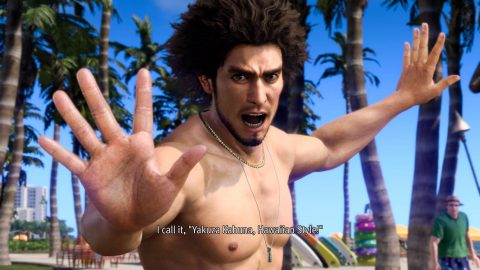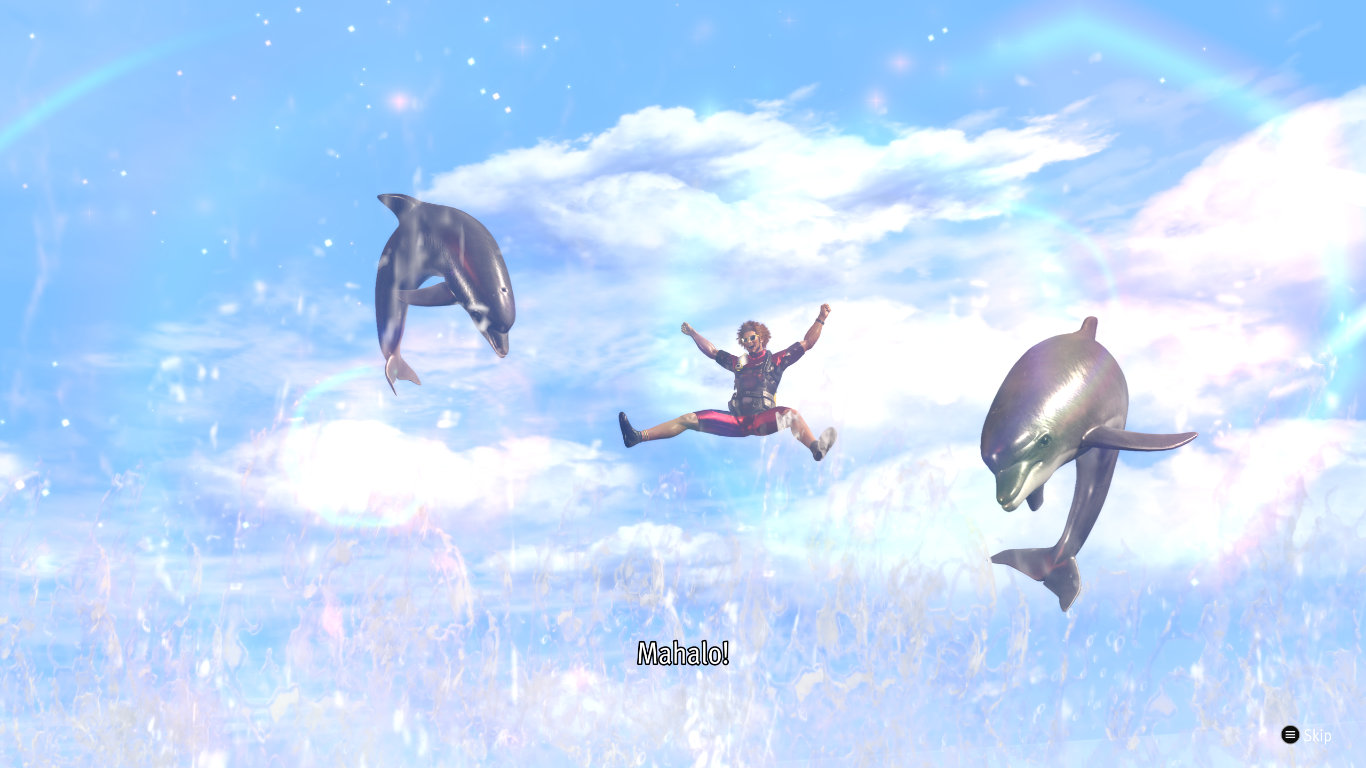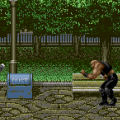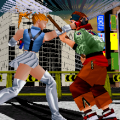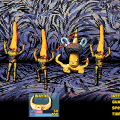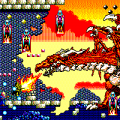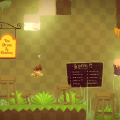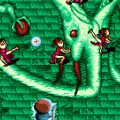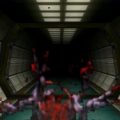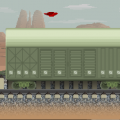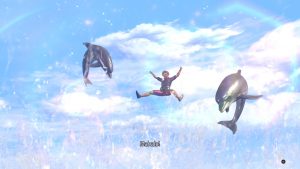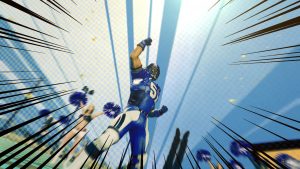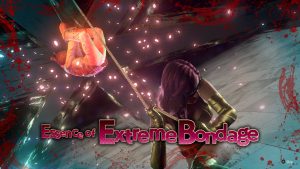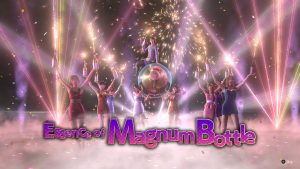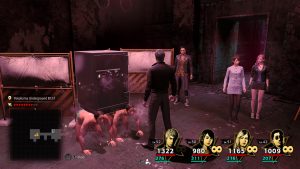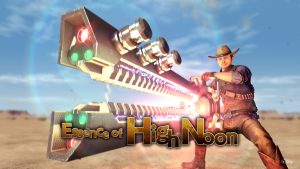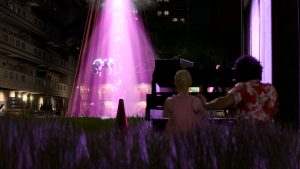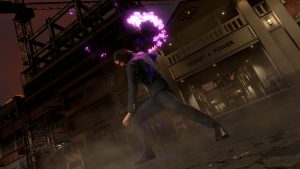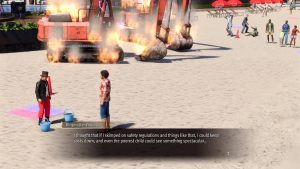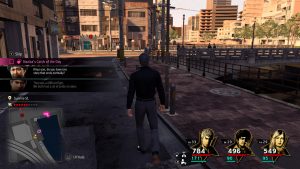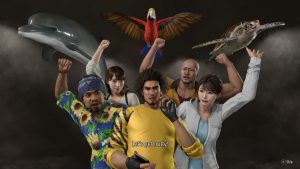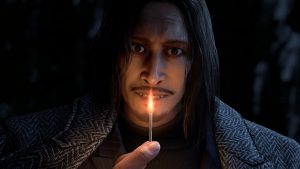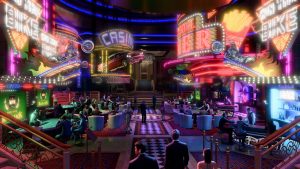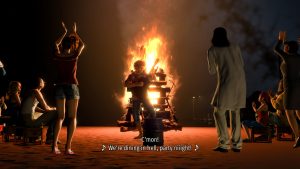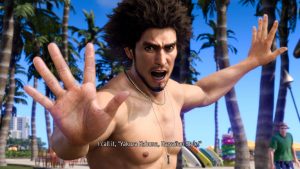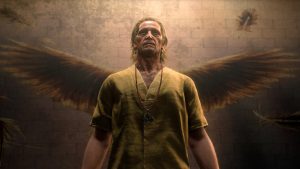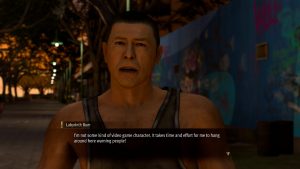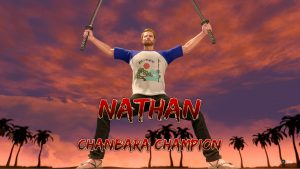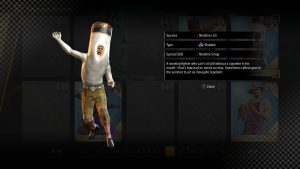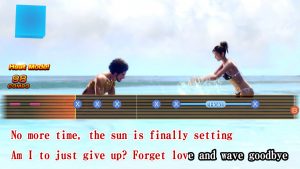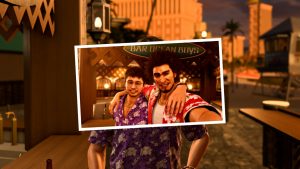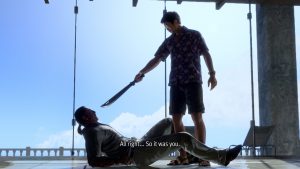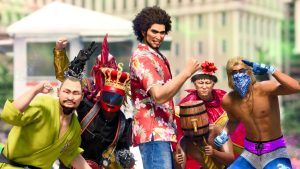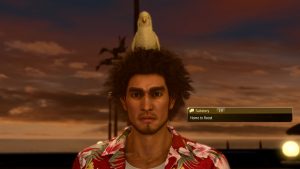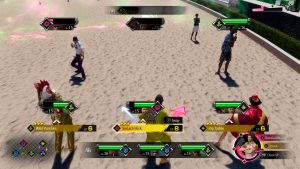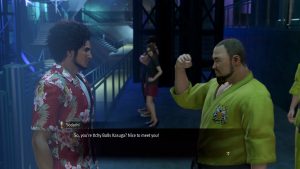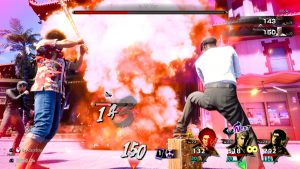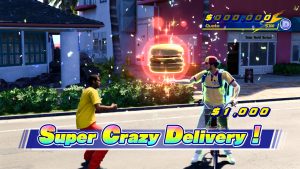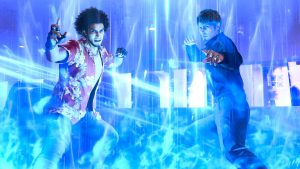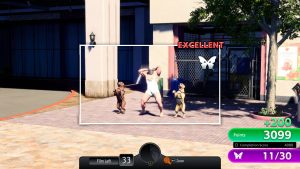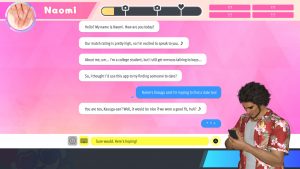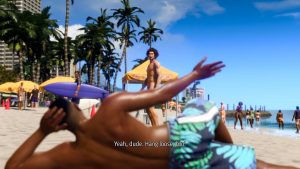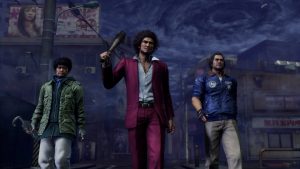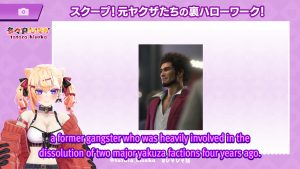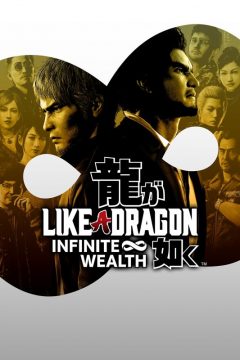
This article discusses spoilers for Yakuza 6 and Yakuza: Like A Dragon
Like A Dragon: Infinite Wealth is one of the largest and most frustrating games RGG has ever put out. It is good, and it might just make you cry by the end, but it is also a slog of a padded out experience. It is the current pinnacle of RGG’s frantic production schedule starting to give, the foundation beginning to crack while the new leadership try to reign things in.
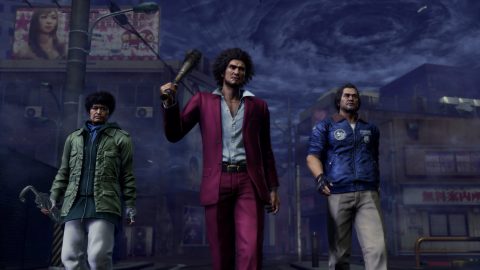
The big ambitions of this entry falter with the studio lacking the time to make enough new assists. The normal loop of combat and city exploration wears thin as our new map is surprisingly bare of minigames to play. There’s still a lack of understanding of what makes job systems so enjoyable in RPGs. This is all the more frustrating because there are moments where this game feels like one of the best, with some of the best character moments and some truly tense story beats, not to mention some brilliant changes to the battle system. This is truly a spiritual successor to Yakuza 5, a fat mess of an adventure with some of the biggest emotional moments of the franchise, something equal parts messy and incredible. It comes recommended, but just be aware that you will feel the length.
Since we last left our favorite 40-something boy, Ichiban has taken a job at Hello Work to try and help the now dispersed members of the Tojo and Omi find work, snaking around a real world law that prevents former yakuza from being legally hired for five years. That answer is Adachi’s start-up security consultant company, hiring former yakuza to use their unique skills to spot weak points in security systems.

Things go wrong when a dastardly Vtuber slanders Ichiban and Adachi, costing them their jobs, made worse for Ichiban due to him blowing his first date with Saeko with a truly cringe-inducing proposal. This eventually leads to Ichiban, Adachi, and Nanba storming the Seiryu clan, who have started mass recruiting and generally acting odd, only to discover that some new blood in the form of a man named Ebina is taking charge while their current clan head serves a sentence. He aims to do a repeat of the Omi and Tojo dissolve, but this time by gathering all yakuza under his flag to transition the massive new Seiryu as a new, legal organization to help them get back into society.
Then things get personal when Ebina reveals he helped get Sawashiro, Ichiban’s former family captain, out of prison (long story) who reveals that the woman Arakawa loved and Ichiban’s mother, Akane, is actually alive and working at an orphanage in Hawaii. Sawashiro and Ebina help Ichiban get to Hawaii to meet with her, something her and Sawashiro have organized via old fashioned letter writing, and things quickly get complicated.
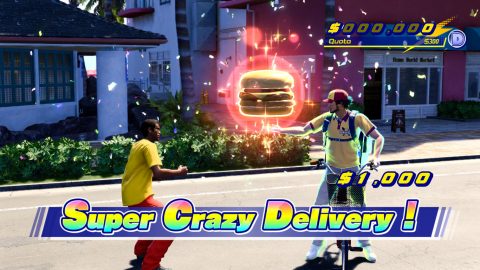
Hawaii’s underworld is also looking for the newly missing Akane, and so are the Daidoji – represented by a Kiryu with a new haircut who quickly comes to Ichiban’s help. Alongside a petty Hawaiian yakuza cabbie named Tomizawa and an heiress with murky motives named Chitose, the four tackle the various gangs of the islands, only to discover a much more complicated truth. Add in Kiryu struggling with cancer and having to return to Japan to organize with Ichiban’s friends to look intro the Seiryu (including Seonhee, the leader of the Geomijui promoted to party member), and we have a world spanning conspiracy that might have the future of the yakuza, Hawaii, and much more in the balance.
Infinite Wealth‘s story is an absolute mess. It is genuinely all over the place in terms of quality, especially when you can feel Furuta’s prose and exposition bits creeping into the script and grinding things to a halt as he tries making the most slobby of all slobs try to have nuanced political opinions about nuclear power and the Japanese economy. Tomizawa talking about how the world treats Hawaii as a dumping group and the homeless issue there makes sense for him, as a proud local boy, but hearing Ichiban’s weirdest, most socially awkward buddies try to have a Serious And Adult talk about national policy is just bizarre. That’s not even getting into how confused the writers feel when trying to tie themes and ideas together, like introducing the nuclear angle of the story in a baffling flashback meant to explain but also not really explain Kiryu’s cancer (maybe???). This needed a lot more passes, especially the absolutely baffling District Five segment in the early game.
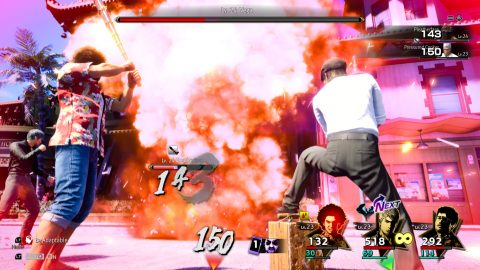
This really shows in trying to figure out what the game is trying to say, because there’s just a mountain of ideas here. Stuff like the Vtuber and cancel culture are here seemingly only here to move the plot along than for any commentary beyond “well that is a thing that happens,” while the game’s green and native supporting messages get kneecapped by an inconsistent understanding of how nuclear power works or the cast mainly interacting with Hawaii via tourist traps. That’s not even getting into the geodancer and pyrodancer jobs, which are based on bastardizations of native Hawaiian traditions made by white businessmen who turned Hawaii into a tourist spot – at the expense of the natives. This is even more bizarre because Danny Trejo’s character just flat out talks about this, even bringing up odd facts like Hawaiian beaches being artificial via imported California sand. Another one of the Hawaiian gangs even sell rich men the fantasy of the manly American dream and that just sort of doesn’t seem to fit into the rest of the theme work, or at least cleanly.
There’s more small things to bring up, like out of character beats and weird inconsistencies, particularly everyone knowing who Kiryu is, despite him never giving Ichiban and his friends a name, and him never being surprised when they call him by name. Despite all of this, there’s a lot that works great, especially how the game handles the legacy of the yakuza and forcing Kiryu to confront that legacy. It feels like a long apology for Yakuza 6‘s ending and messaging, returning to the ideas of Yakuza 3 and dealing with Kiryu’s long running flaw of pushing people away due to his guilt complex.
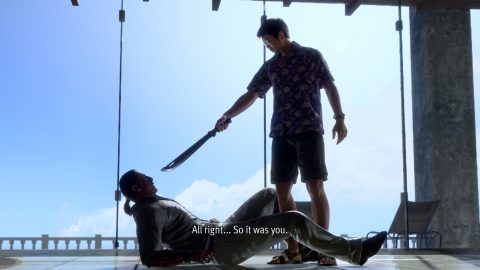
Ichiban’s story also has some great beats, particularly in its true villain and the absolutely fantastic Yutaka Yamai. He is easily one of the best characters the franchise has ever given us, a Majima by the way of Ichiban, yet with a unique, baffling personality that makes him stick out like a sore thumb. You’ll be cheering him on by the game’s final hours. Despite all of its many issues, Infinite Wealth was clearly made with love for this world and characters – the studio just chewed off far more than they should.
The rest of the game is a constant shuffle of sideways steps. Whenever there’s a clear improvement, there’s an odd issue alongside. The battle system is a great example, fleshed out by now allowing you to position characters and make use of knock backs, combos, and ramming enemies towards other party members for follow ups. There’s even now a grappling system, where some skills have a grapple property that breaks guards.
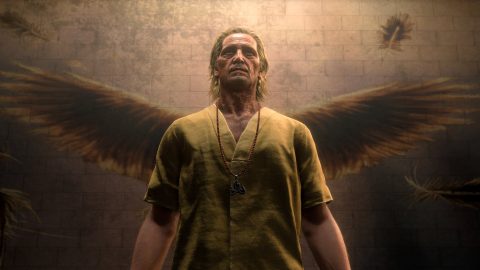
The system’s only significant issues come from it being inconsistent. Visual elements showing the general direction an enemy will be knocked in are sometimes off, and characters can still dash out of the way when you least expect it, ruining set-ups. Your characters also reposition with skill use, in order to allow the animation to play properly, which can cause further set-up issues. All of these are small issues, but they do cause problems here and there.
The job system also feels particularly odd in what has changed. We do get a big improvement in being able to get skill slots via the improved bond leveling system (Ichiban unlocking them with his personality system), meaning we can stack in the skills we like the most. This also means we can combine skills with some synergy, giving some light build options. Unfortunately, stat boosts given by jobs are now almost entirely after rank 30, and every job before that just gives a few health and MP bonuses. That’s a clear downgrade, even with how quick jobs can level now, or characters getting most of their stats from basic leveling instead of from jobs.
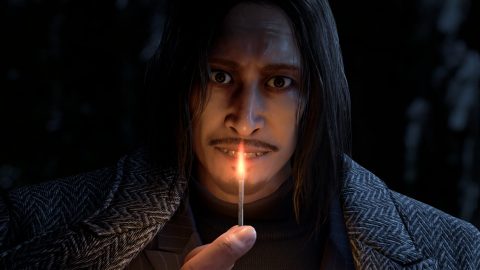
Dungeons are now procedurally generated, which makes layouts less repetitive for grinding sessions – but actual room variety is very low. We have a bunch of new fleshed out minigames in Hawaii, but they have very little staying power, despite having rare items attached to them that have absurdly high costs to get. Kiryu gets his own unique party for three chapters and half the finale, plus his own mechanics attached to his default job relating to his styles from 0. Heck, he can even enter a beat-em-up mode after a surprise main story appearance from Jo Amon (while looking like Shin for some reason). The downside there is it causes pacing issues gameplay wise with Ichiban’s group, leaving them under-leveled and without a fifth party member until the second to last chapter.
Ichiban also gets the two big side activities, which are fun in terms of how they were conceptualized and the stories attached to them, but they both feel half baked. As a parody of Pokémon, where you recruit and collect enemies, the Sujimon battles are mechanically weak, the systems easily bypassed with the gacha system, while major mechanics are just bad to use. For some reason, big power moves require you to use a roulette to decide if the move works at all, while the AI can just use the move as soon as they have the meter. Dondoko Island, the take on an Animal Crossing-style island building sim, is also a significant disappointment, managing to have a satisfying loop while you build up the resort, but what you can actually put in said resort is just reused buildings and objects from the various city maps. Yes, you are expected to populate an island resort with ugly, groggy urban buildings covered in AC units, especially because those give the biggest stat boosts.
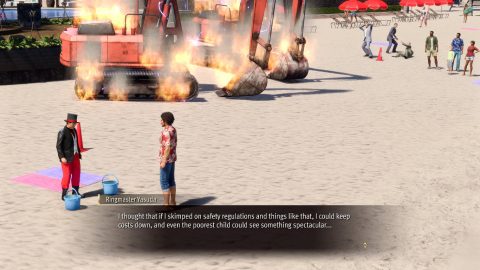
The substories, at the very least, are all fantastic. Ichiban gets in some truly hilarious situations this time around, especially with surprises like the alien abduction and the sudden return of a certain diaper wearing patriarch, and it’s almost entirely voice acted with good cinematography attached. Kiryu, on the other hand, gets a lot of revisiting his past, with some genuinely heartwarming reunions, some pretty strong emotional conversations, and his fantastic life link stories. Those are the one area the dub feels odd, especially when Akiyama appears with a voice that will really throw you for a loop (though his actor sounds way better in his Poundmates summon). Thankfully, Bill Farmer’s Date remains a stand out performance, playing off Yong Yea’s Kiryu well and anchoring the other new actors who are struggling with this new role. Special mention should also go to Matthew Yang King as Tomizawa and Andrew Kishino as Yamai, the former giving the little cabbie a really unique accent, and the latter giving Yamai a gruff and aggressive vibe that contrasts well with his detached persona.
Honolulu is a really nice looking map, with some interesting areas the further away you get from the tourist flooded beach area, though it is lacking in things to do. There’s some fun attempts to give Ichiban more ways to interact with the world itself, like a treasure hunt and a dedicated “aloha!” button with certain NPCs to get personality gains via social media. That’s nice, but there’s a severe lack of play areas, including expected mainstays like bowling, batting, or, well, anything besides gambling. It’s notable how much more packed Injincho and Kamurocho are in comparison. Ichiban doesn’t even get a proper fishing minigame, just a simple button press for quick resource gathering.
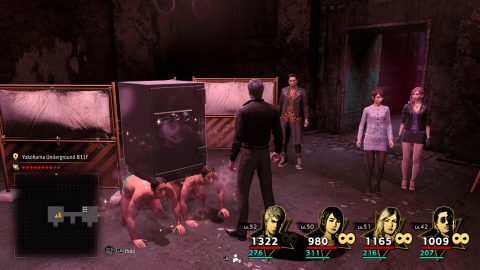
The soundtrack is yet another strong one, with strong faction themes like Slugfest and Camouflage, and that’s not even getting into the boss tracks. Yamai’s track, Kooky, is one of the best themes any Majima expy has ever gotten, an excellent turn on his faction theme that plays into his odd behavior and aggression well. And that new Brutality remix…the good stuff. We even get unique music in the side stuff that stands out a lot, the big one being Sad Mechanism. Once you realize this is a remix, and what it is a remix of, you will be shocked that such a thing was even possible.
Also worth mentioning that the DLC is kind of trash. This was also true of Y:LAD, but Infinite Wealth gets special mention for trying to sell you the post-game super dungeon, and said dungeon is mostly just reused character models. Save your money, it’s not worth it for the few attached beach episode bits, especially because seeing Ichiban’s middle aged friend group having beach episode shenanigans that teenagers would have is just bizarre.

Infinite Wealth, when you get down to it, is a bit of a mess. But like they often do, RGG stuck the landing, with a climax on the level of Lost Judgment‘s extremely hype showdowns. It doesn’t excuse all the pacing problems, all the bizarre dialog that infects the script at points, the messy theme work, the lacking maps, or the strange gameplay balancing decisions – but it does make you forget them, as you see a perfect end to Kiryu’s story, and a perfect note to continue Ichiban’s. For all of its problems, Infinite Wealth is memorable and, at times, extremely fun, and extremely moving.
Like A Dragon is a giant mess of a franchise, just like…us. It screws up so much, it occasionally believes in dumb things, but despite it all, you can feel the love it has for humanity at large, what we’re capable of, even those at the very bottom rungs of the ladder. From the kindest soul to the most horrible villain, it sees the humanity in us all.
Here’s hoping we have a lot more adventures of the Hero of Yokohama for years to come.
